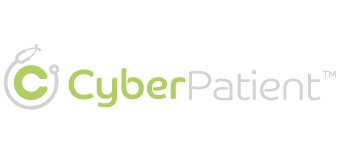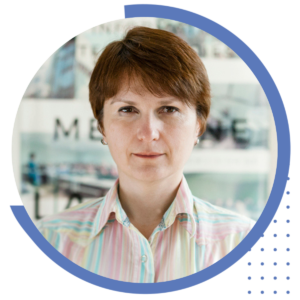Simulation Platforms for Research
An Experts Series session connecting global leaders and learners
In addition to enhancing medical education, simulation platforms for research are also being used to help students develop investigative skills, providing a valuable tool for aspiring medical researchers to explore and test new ideas and methodologies in a controlled and dynamic environment.
Our recent Experts Series speaker, Dr. Ekaterina Kldiashvili, Professor and Vice-Rector in Research at Tbilisi Medical Academy, shared her extensive research experience and expertise in an enlightening session focusing on simulation platforms as research skills and development tools – “Simulation Platform as a Tool for Research Skills Development within Medical Curricula.”
In recent years, there has been an increasing emphasis on research skills development within medical curricula, particularly during and after the pandemic shifted traditional curricula to more online learning. Virtual and physical simulation platforms offer several advantages in this regard. For example, they allow students to practice various research skills, from data collection and analysis to ethical considerations and communication with study participants. In addition, simulation platforms can be tailored to specific research topics, allowing students to gain practical experience in areas such as patient-practitioner communications, epidemiology, clinical trials, health policy, etc.
Dr. Ekaterina, with vast experience in designing research lines in medical curricula, provides a new perspective on the connection between simulation education and research. She emphasizes the importance of defining learning objectives as the initial step in developing a research line, illustrated through her recent project at Tbilisi Medical Academy. Once the learning objectives have been established, the design concepts of the research line can be developed. This requires careful attention to detail in the design and implementation of the simulation, as well as ongoing monitoring and evaluation to ensure that the simulation meets the desired learning objectives. She also notes that one of the main challenges is ensuring that the simulation is realistic and accurate. Another identified challenge and potential influence of the research’s success is to ensure that students are engaged and motivated to participate in the simulation. She elaborates on the fact that it was the student’s choice to become medical doctors, and their interest in their future profession is critical. Furthermore, Dr. Ekaterina delves into how practicing medicine virtually through early adoption can enhance clinical reasoning and refine communication skills between patients and practitioners.
Ekaterina Kldiashvili holds an MSc in Biology (Cell Biology, 1995) and Ph.D. in Histology, Cytology and Embryology (2003) from Tbilisi State University. She is head of the Biochemistry and Genetics Department and, from 2019, is also leading the Scientific-Research and Ph.D. Department at Petre Shotadze Tbilisi Medical Academy.
Dr. Ekaterina invites anyone to contact her if interested in collaboration within the field of research and medical education.
Simulation Platforms for Research – Q+A Sessions
During the Q+A session, Dr. Ekaterina used her first-hand experience to answer some challenging questions, including insights into using ChatGPT – a current hot topic. Watch the presentation to hear her inspirational answers to the following:
- Where do you see the future of the research line evolving in medical curricula in the next five years?
- What is something you’re very proud of that has changed in healthcare education that you may have been a part of compared to when you were a student?
- How do you see research changing as new technologies in virtual simulation evolve or introduce?
- What are your thoughts on using AI for future team training, like bringing nursing, Pharma students, and medical students together to practice? And is this a missing component in current traditional curricula?
Simulation platforms offer a valuable tool for developing research skills within medical curricula. With careful design and implementation, simulation platforms can provide students with practical experience in a safe and controlled environment, allowing them to develop the skills and knowledge needed in their future careers.




